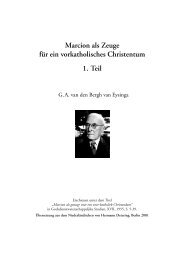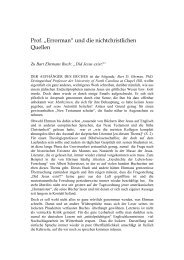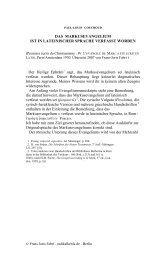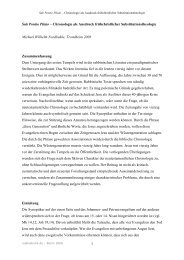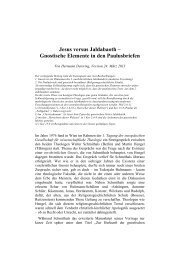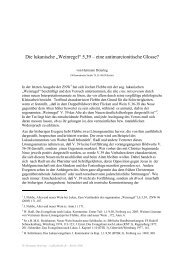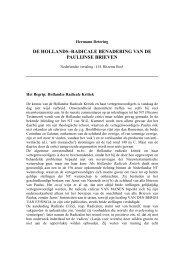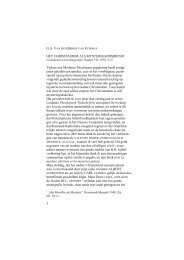Arthur Drews - PDF Wikipedia Aug. 23, 2012 PAGES - Radikalkritik
Arthur Drews - PDF Wikipedia Aug. 23, 2012 PAGES - Radikalkritik
Arthur Drews - PDF Wikipedia Aug. 23, 2012 PAGES - Radikalkritik
Create successful ePaper yourself
Turn your PDF publications into a flip-book with our unique Google optimized e-Paper software.
of historical theology [6] which attributes the formation of Christianity to Jesus's<br />
"great personality". He mentions the key names of historical criticism that<br />
emerged in in the late 18th century and blossomed in the 19th century in<br />
Germany.<br />
■ Charles-François Dupuis (1742–1809) and Comte Constantin-François<br />
de Volney (1757–1820), the two French critical thinkers of the<br />
Enlightenment, who were the first to deny the historicity of Jesus on<br />
astromythical grounds, which they saw as key factors in the formation of<br />
religions including Christianity.<br />
■ David Strauss (1808–1874), who, at 27, pioneered the Search for the<br />
Historical Jesus with his Life of Jesus in 1835 (of 1,400 pages) by<br />
rejecting all the supernatural events as mythical elaborations.<br />
■ Bruno Bauer (1809–1882), the first academic theologian to affirm the nonhistoricity<br />
of Jesus. He claimed that Mark was the original Gospel, and<br />
the inventor of the historicity of Jesus. He traced the impact of major<br />
Greco-Roman ideas on the formation of the NT, especially the influence<br />
of Stoic philosophy (Seneca). Bruno Bauer's scholarship was buried by<br />
German academia, and he remained a pariah, until Albert Kalthoff<br />
rescued him from neglect and obscurity.<br />
■ Julius Wellhausen (1844–1918), an expert scholar of the Torah/<br />
Pentateuch, who was a leader in historical and source criticism;<br />
■ William Wrede (1859–1906), the promoter of the Messianic Secret in<br />
Mark, and who confirmed Bruno Bauer's claim that Mark was the real<br />
creator of Christianity;<br />
■ Johannes Weiss (1863-1914), the first exegete of the Gospels to attribute<br />
an apocalyptic vision to Jesus, accepted by Schweitzer and many others.<br />
He initiated form criticism later developed by Rudolf Bultmann. Weiss<br />
gave the name of "Q to the "sayings of the Lord" common to Matthew and<br />
Luke. He was considered the highest authority in his time.<br />
■ G.J.P.J. Bolland (1854–1922), a Dutch autodidact radical, interested in<br />
Hegel and von Hartmann (letters from <strong>Drews</strong> to Bolland were published in


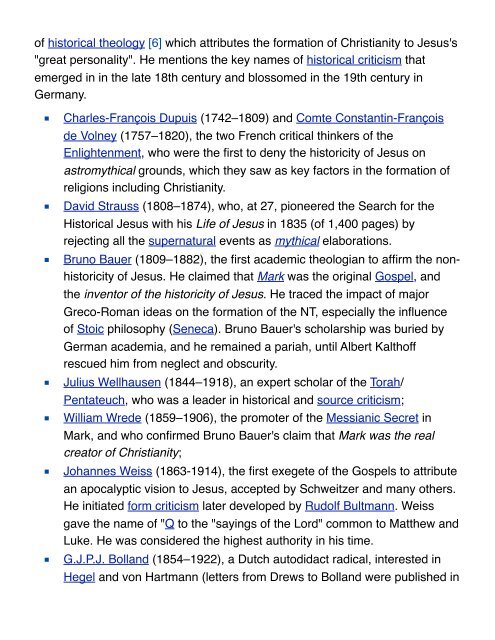
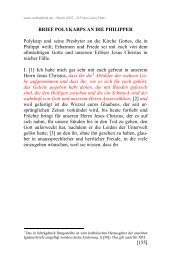
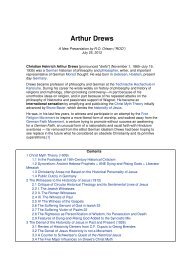
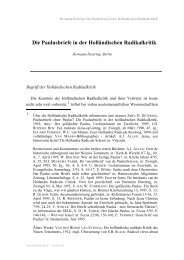
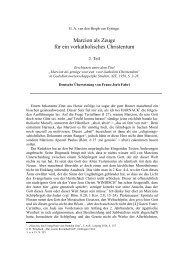
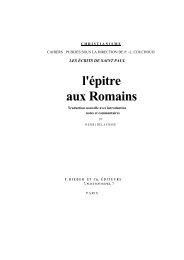
![[1] quibus tamen interfuit et ita posuit - Radikalkritik](https://img.yumpu.com/28285180/1/184x260/1-quibus-tamen-interfuit-et-ita-posuit-radikalkritik.jpg?quality=85)
